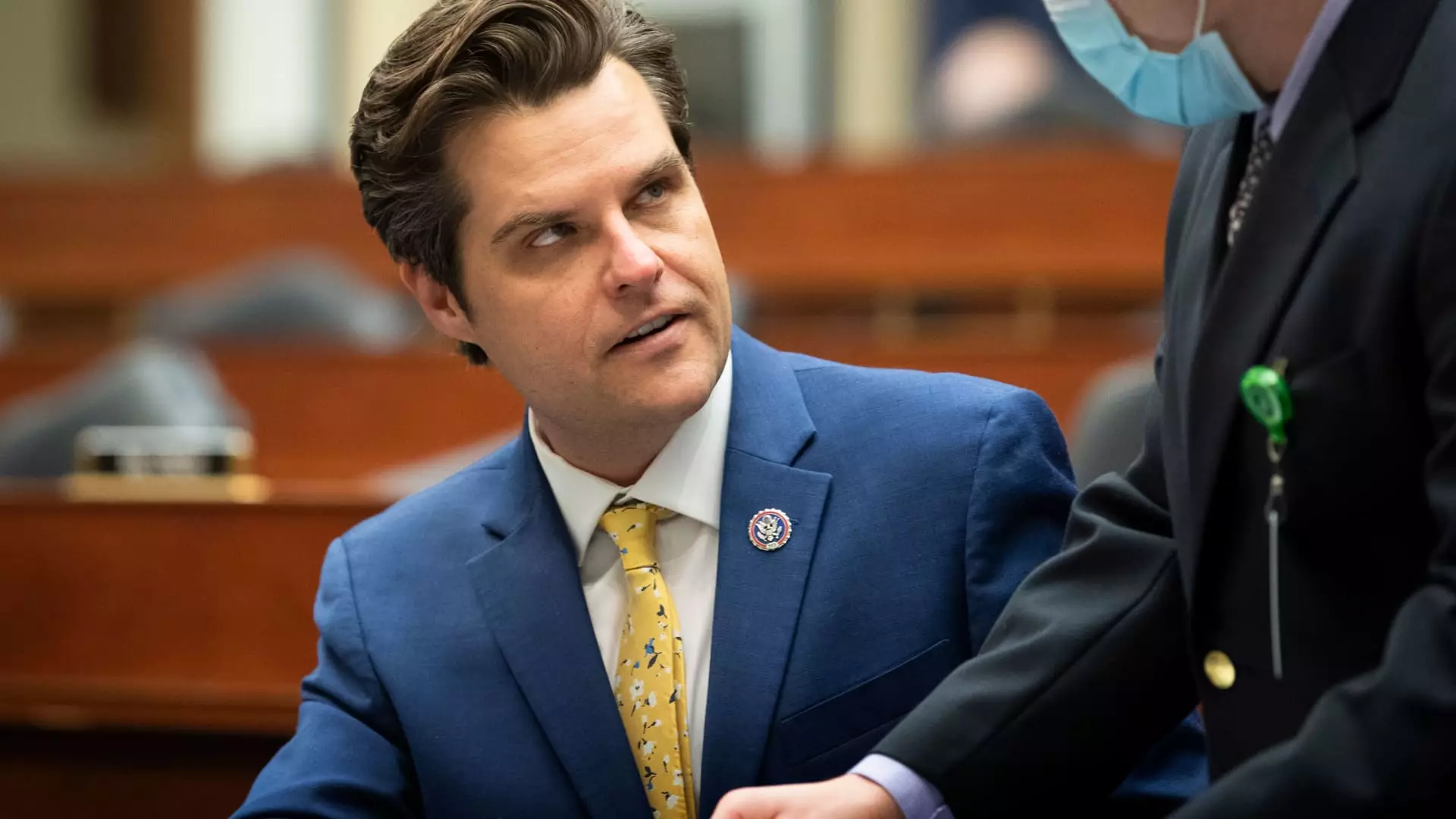The recent announcement regarding the House Ethics Committee’s decision to release a report concerning former Representative Matt Gaetz has ignited significant debate in political and public spheres alike. The implications of this report — centered on serious allegations of sexual misconduct and illicit drug use — raise numerous questions about the standards of accountability for public officials, especially in the wake of one’s resignation from office. The manner in which the committee has approached this situation could set important precedents for future ethical inquiries into members of Congress.
The backdrop to the committee’s forthcoming report involves a protracted investigation that initially paused as federal authorities pursued separate inquiries into Gaetz’s conduct. The Justice Department’s investigation, which probed allegations of sex trafficking, ultimately concluded without any charges being filed. However, this lack of legal repercussions does not absolve Gaetz from potential ethical violations that fall under the purview of the House Ethics Committee, which is tasked with maintaining accountability among its members.
The committee’s renewed investigation, which commenced in May 2023, sought to assess whether Gaetz engaged in a series of unethical behaviors, including sexual misconduct, drug use, and the acceptance of inappropriate gifts. The scope of the investigation is critical, as it juxtaposes legal findings with the ethical obligations that representatives owe their constituents and colleagues. Gaetz has categorically denied engaging in any illicit activities, including having relationships with underage individuals, asserting that any claims against him would not hold up in court.
The move to release the report elicited a sharp rebuke from Gaetz himself, who took to social media to express his frustrations. He highlighted what he perceives as a politicized investigation, claiming to be “fully exonerated” after the Justice Department’s decision not to file charges. His assertions raise compelling questions about the intersection of legal and ethical standards, particularly in light of the committee’s findings which may still carry a substantial weight of public scrutiny.
The public response to this situation has been divided. Supporters of Gaetz may well view this report as a politically motivated attack, especially in the context of a highly polarized political environment. Conversely, critics contend that this disclosure is essential for accountability and transparency, especially given the severity of the allegations involved. The implications of such perceptions could have lasting effects not only on Gaetz’s political future but also on the overall trust in governmental institutions.
The decision to release findings on a former member of Congress is not entirely without precedent. Historical instances exist where the Ethics Committee has chosen to disclose reports post-resignation, but the frequency of such actions is limited. In 1987, for example, the committee released a report concerning former Rep. Bill Boner following similar ethical inquiries. This history raises critical questions about the rationale and criteria that guide current decisions regarding the publication of such reports.
In the case of Gaetz, House Speaker Mike Johnson’s expressed concerns about setting a “terrible precedent” could resonate with future legislative conduct. If the ethics committee pursues a policy of disclosing reports on individuals who are no longer serving, it may inadvertently create an environment where resignations prompt investigations that could linger indefinitely.
As the House Ethics Committee prepares to unveil its report, the ramifications of this decision extend well beyond Matt Gaetz and his individual case. It highlights the broader issues at stake regarding ethics, accountability, and the responsibilities of public figures. The committee’s actions could potentially foster a culture of heightened scrutiny, prompting lawmakers to be more mindful of their behavior while in office. Conversely, it may also escalate partisan tensions, with the risk of ethical investigations being weaponized in the political arena.
Ultimately, this unfolding situation underscores the delicate balance that legislative bodies must maintain between holding officials accountable for their actions and ensuring that investigations are conducted fairly, without political bias. The pending release of the Gaetz report is more than just a reflection of one congressman’s troubles; it is a pivotal moment that may redefine the standards of ethical conduct within Congress for years to come.


Leave a Reply